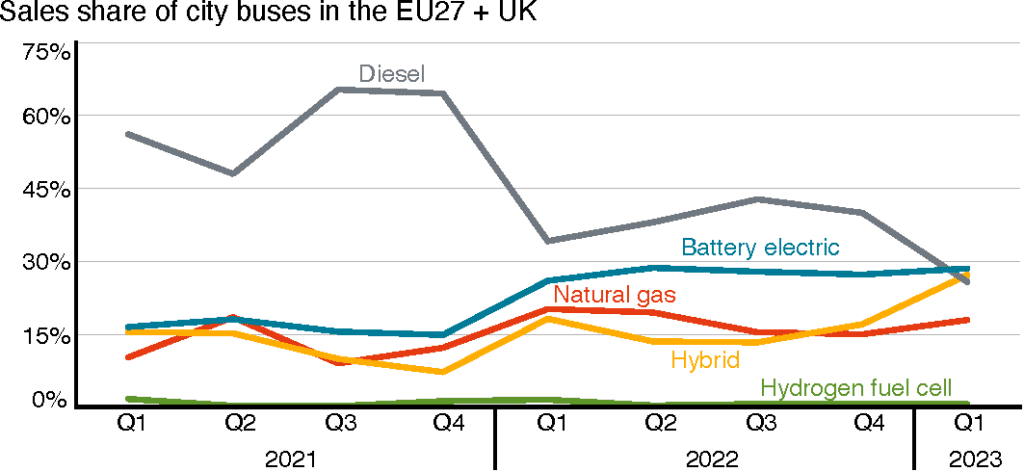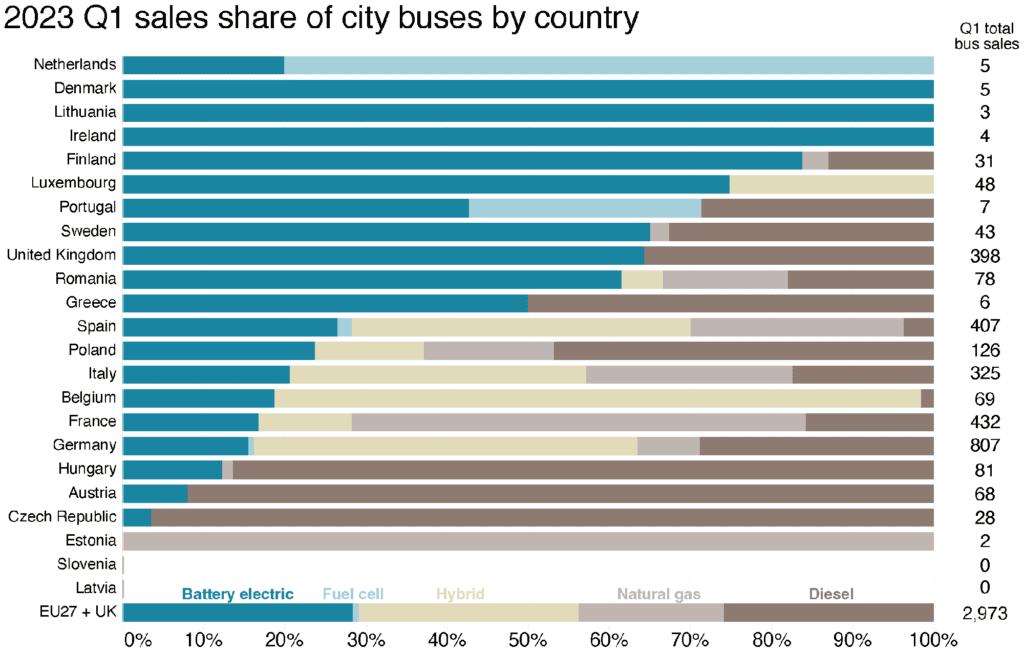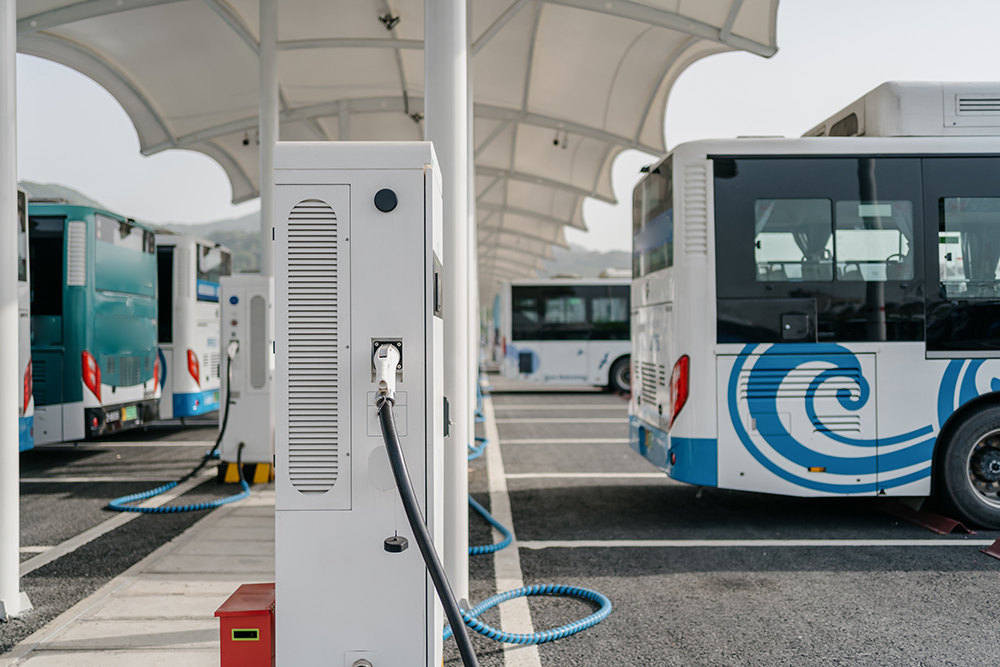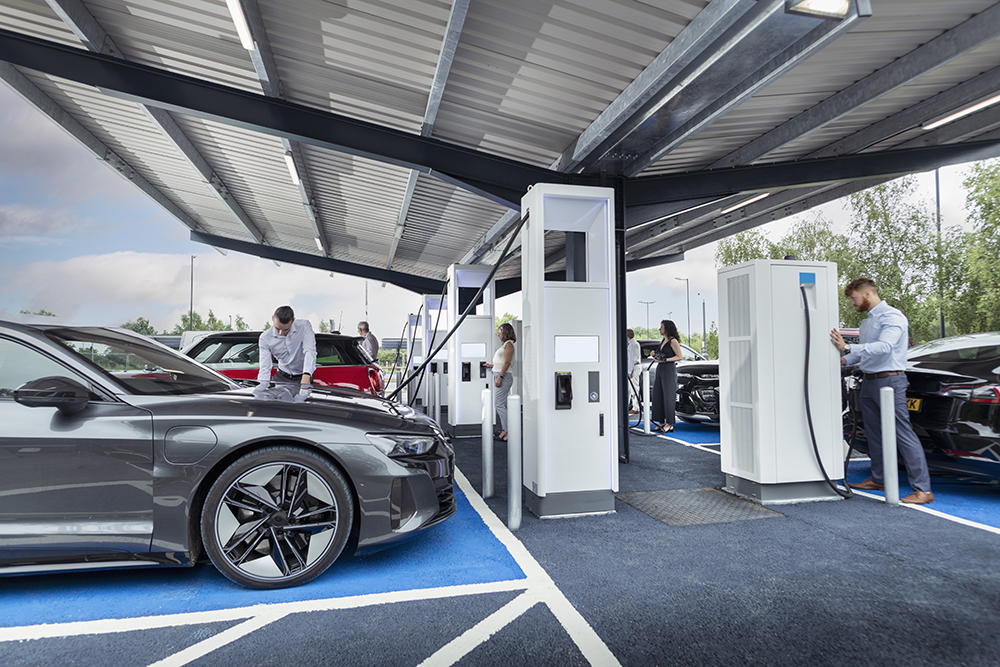The skies are slowly beginning to clear in the EU, where the most recent quarterly sales data for transit buses shows that diesel-only buses no longer make up a majority of the market.
As the International Council on Clean Transportation explains, city buses (not including coaches and interurban buses) make up about 60% of all heavy-duty passenger vehicle sales. They tend to have high emissions, and their typical use cases make them prime candidates for electrification.
The latest milestone was not reached due to a significant rise in sales of zero-emission buses—which have hovered around 30% for the last year, according to the ICCT—but rather from increased sales of hybrid buses, which overtook those of diesels this year.
The EU’s Clean Vehicles Directive requires member states to purchase between 24% and 45% “alternatively fueled” buses (i.e. anything other than diesel-only) from August 2021 to December 2025, and half of these need to have zero-emission powertrains. The targets will increase to 33-65% in 2026, so diesel’s days in Europe are clearly numbered.

Several individual countries have set their own targets: ICE bus sales are to be phased out in the Netherlands and Denmark by 2025, in Ireland by 2030, and in Austria by 2032. Major cities are also regulating stinkpots out of existence—the ICCT reports that over half our Europe’s capital cities plan to have only zero-emission buses on their roads by 2040.

The transition is taking place more slowly than many would wish. Hybrid vehicles are playing a strong role in Europe’s largest countries, and an unfortunate amount of investment is going to methane gas engines, especially in France, Spain and Italy. A recent lifecycle analysis carried out by the ICCT found that a natural gas city bus reduces greenhouse gas emissions by 17% compared to a diesel counterpart, whereas a battery-electric bus can deliver a reduction of up to 75%.
Good news: Hydrogen fuel cell buses made up only a tiny percentage of the buses bought in the quarter.
Bad news: Europe still lags far behind China, where zero-emission buses took 91% of the market in 2022.
Source: International Council on Clean Transportation










































































































